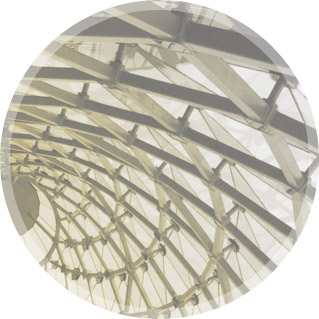Rensselaer Polytechnic Institute
School of Architecture
Significant changes are occurring within the discipline and profession of architecture in the areas of globalization, interdisciplinary teamwork, and emerging technologies.
http://www.arch.rpi.edu
Setting
Rensselaer's historic main campus sits on a bluff overlooking the city of Troy, NY, and the Hudson River. The area offers a relaxed lifestyle with many cultural and recreational opportunities, with easy access to several major metropolitan centers.The School of Architecture is housed in the Greene Building, located in the center of Rensselaer's campus.
School Philosophy
Architecture is situated at a unique moment in history where a convergence of global interests demand that our discipline responds in a critical and innovative manner. Faced with an ever-increasing focus on creating new forms of renewable energy, smart grids and coastal city solutions, computational engines, immersive environments, and ecologically sound building components for the 21st century, the profession of architecture has inherited a wealth of transdisciplinary priorities that calls out for a new era of creative inquiry and engagement. Reinterpreted as a moment of opportunity, it's an extraordinary time in academia to explore alternative design methodologies, digital design and manufacturing technology, a variety of more expansive interdisciplinary collaborations, and the larger mission of educating the next generation of architects to harness their innate intellectual and creative imagination in service of a complex planet undergoing continuous change. Here in the School of Architecture at Rensselaer, we take pride in preparing our students to become future leaders in the profession. Beyond offering a comprehensive education that leads towards licensure within our two NAAB accredited professional programs we aspire to creating an environment and culture throughout the School that rewards the nobility of ideas, the roots of theoretical inquiry, the merits of social responsibility, the resounding effects of innovative design and the impressive achievement of realizable proposals that are thoughtfully conceived as benevolent gifts to the world at large. In response to a transdisciplinary approach to education, the School is uniquely structured as a constellation of preeminent research areas (architectural acoustics, lighting and built ecologies) that have the capacity to realign in favor of a variety of potential collaborative arrangements. Seeking to build a more robust set of graduate study concentrations in support of our internationally renowned undergraduate program the beginning student of architecture resides within a dynamic and inspired interdisciplinary environment prepared to take on the many exciting challenges facing our profession today.

Programs
The School of Architecture offers a five-year Bachelor of Architecture (B.Arch.), a professional degree accredited by the National Architecture Accrediting Board. The degree is designed for those prepared for serious architectural study beginning their first year. The BS Building Science four year degree is non-accredited, and offers concentrations in Management, Civil Engineering, Lighting and Acoustics. A visit to the School and a faculty interview are encouraged as part of the application process. http://www.arch.rpi.edu/visit.htM.Arch.itecture candidates will use the on-line portfolio system http://rpi.slideroom.com/. In cases where a prospective student is in the top 5% of their class, SAT scores above 1400, the portfolio may be waived, however an interview with a representative in the architecture school will be required. Students may also apply for transfer from other schools of architecture or related programs of study. Transfer students are placed at an appropriate level in the program after a review of transcript, course descriptions, and portfolio of work. BACHELOR OF SCIENCE IN BUILDING SCIENCE PROGRAM The four-year Bachelor of Science in Building Sciences degree prepares students for direct entry and leadership in a broad range of roles and opportunities within the vast and diverse building design and construction industry. It also serves as an excellent foundation for advanced degrees in architecture,engineering, construction management or business, to name just a few. High-performing students may also choose from several dual degree or co-terminal (4-year Bachelor and Masters of Science) options while at Rensselaer. Building Science is the discipline that focuses on phenomena that inform the design and construction of next-generation buildings, integrated high-performance building systems, structures, enclosures, environmental systems, lighting, and acoustics as well as their management, performance, and diagnostics. As the complexity of building systems, design and analysis tools increase to match ever-expanding building performance expectations in a sustainability-minded world, a foundational understanding of first principles is increasingly vital to diverse sectors of the design and construction industry. The degree consists of 129 credits. In addition to a establishing a solid grounding in fundamentals relating to materials, structure, energy,heat transfer, enclosure and management, students also gain an awareness and critical perspective of the design process before selecting a concentration in areas such as construction management, structural engineering, sustainability, lighting or architectural acoustics. The purpose of the concentration is to develop specialized knowledge in an area of relevance to the construction of the built environment. Each concentration requires four four-credit courses (or equivalent) that are approved by the Building Sciences program director. Students in the Building Sciences program declare their concentration, prepare and submit a plan of study at the end of the second semester. The plan of study must be approved and filed with the Building Sciences program director. MASTER OF ARCHITECTURE PROFESSIONAL PROGRAM The School of Architecture is located within a great technological university with a long legacy of innovation. Students in the graduate professional program receive an education that participates in this tradition. While grounded in the technical fundamentals of a professional education, it's clear focus is on design and innovation. The School has particular strengths in computation, materials,and fabrication techniques that are applied to the development of advanced spatial, formal, and technical solutions. The 3.5-year M.Arch. first professional degree is situated among a constellation of research-based graduate programs at the Master's and Doctoral levels. The professional program draws inspiration and expertise from these to educate architects for contemporary design practices that are increasingly engaged in research and innovation. One semester of the curriculum is taken at the Center for Architecture Science and Ecology in Manhattan. At the main campus in Troy, NY, Architectural Acoustics and Lighting programs provide advanced professional electives. Students with advanced standing are able to customize a professional education with considerable coursework in these specialties. The Master's thesis provides an opportunity to integrate focused research and architectural design. Competitive merit-based scholarships are available to qualified applicants.http://www.arch.rpi.edu/grad_ma.htm M.Arch. II. The Master of Architecture Post-Professional degree (M.Arch. II) provides outstanding young professionals who hold a Bachelor of Architecture or equivalent the opportunity to enter into a post-professional course of study. The program is two semesters long with consecutive fall and spring terms comprising a 30-credit curriculum. RESEARCH PROGRAMS The M.S. and Ph.D. in Architectural Sciences are research oriented degrees with concentrations in Built Ecologies, Architectural Acoustics, and Lighting. These unique programs are founded on the position that the increasing demands for effective building performance can only be addressed adequately through directed research and development. http://www.arch.rpi.edu/grad_overview.htm. The Ph.D. is offered to candidates who are prepared to undertake innovative and substantive research that adds to the body of knowledge drawn on by the design disciplines to support and shape the understanding and production of the built environment including its physical, biological, social, cognitive, and cultural contexts. A distinguished faculty within the School and across the Institute provides support for research projects that are informed by both disciplinary depth and trans-disciplinary integration. http://www.arch.rpi.edu/grad_phd.htm.

of Focus
1. Art & Design
2. Building Technologies
3. Digital Design & Visualization
4. Digital Fabrication & Technology
5. Materials and Construction

Opportunities

Facilities

Policies
Transfer Policies
Rensselaer considers any student with 12 or more transferable college credits completed after high school as a transfer student. Transfer students may apply to all of our programs, with the exception of the accelerated law and medical programs. Transfer students should apply via the Common Application or the Coalition Application. Transfer applications are reviewed on a rolling basis. Transfer students are required to live on campus for the first two semesters.
For academic requirements and more, click here: (https://admissions.rpi.edu/undergraduate/transfer)


